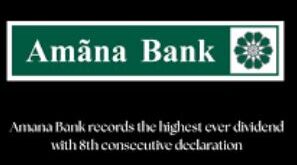 A longtime advocate of proper financial education, I have called repeatedly for incorporating economics and financial literacy in school programs.
A longtime advocate of proper financial education, I have called repeatedly for incorporating economics and financial literacy in school programs.
There are a number of reasons why this is important. First, children are exposed to many more consumer choices than previous generations. Second, financial products and services are increasingly targeting the younger people and are therefore more appealing and user-friendly.
Third, inflation and increased cost of living require the participation and contribution of all family members for better lifestyle. Today’s children understand some money language by virtue of the Internet and media. Economic knowledge helps one adjust to the environment and means of livelihood. For example, after learning how job markets function, a job candidate can develop a more practical approach to his needs and work demands.
And because all the above and more are calling for changes in parental approach to money and savings, it has become imperative to bring the science of economics and how the world really works to school and college.
Why start so early?
Children are more capable of conforming to financial habits, just like most other habits, whilst financial prudence and thrift become progressively challenging if not exercised at a young age.
Needless to describe poor financial and consumer habits in the Saudi lifestyle, from excessive use of energy, organic material and gasoline, to inefficient wear and tear of most products and services, I personally get alarmed at the wasteful practices and foresee the upcoming generations suffering during a — not unlikely — decline in economic growth and country wealth.
So, how does the rest of the world do it?
In advanced economies, financial education is an integral part of school curricula and extracurricular programs. For example, in the US, “economics” is taught in high school and the Fed (central bank of the US) provides excellent tools of learning finance and economics for K-12 and pre-college levels on its website.
In Australia, high school economics course includes the study of economic concepts and principles followed by reasoning and interpretation. The latter part focuses on critical thinking and analyses, which in Saudi school curricula are limited to abstract mathematics, for example. As the Saudi student graduates, their below standard performance and understanding of real life problems impedes their effective participation in the job market.
In addition to publicly sponsored school programs, there are a myriad of others sponsored by financial institutions and other entities to help combat financial illiteracy, address awareness issues in their respective countries, or for financial service providers to expand and grow. And although the outcome of such programs varies, the overall results are usually rewarding.
Statistics
According to Iowa College Aid (a nonprofit government program promoting financial literacy and college access), 41 percent of US adults, or more than 92 million people living in America, gave themselves a grade of C, D, or F on their knowledge of personal finance. Some 32 percent of adults report that they have no savings. Another 26 percent admit to not paying all of their bills on time, and 33 percent want to provide a college education for their children but have not yet begun to save to meet that goal, while 15 percent say their children will have to pay for college themselves.
In Saudi Arabia almost every child (and adult) has access to free education, yet most college graduates are not sufficiently qualified for the job market. Roughly, 80 percent of the population doesn’t own a home and thus paying rent, without near-term plans for home ownership.
Saving has become one of the hardest undertakings with the current cost of living and income levels. Paradoxically, temporary opportunities in the stock market drive even the lower-income class to put their meager savings, or sell their physical assets in pursuance of the get-rich-quick fantasy.
Financial education, boring?
From an academic angle, financial literacy needs not be boring or uninteresting. In fact, the study of finance and economics can be a lot of fun since it interprets much of our daily behavior and attitude toward things, consumption and future plans. For instance, when I taught introductory banking in college, each student had to come up with an excel sheet of her spending habits and any possible red flags. Throughout the course, ways of combating bad habits were discussed and promoted. I could see how their opinion on savings and planning improved slowly over the life of the course. It was a great source of pleasure and satisfaction for us both.
For children, countless sources on savings, earning and wise spending can be found on the Internet. A personal favorite is a graphical book by Sheila Bair (chair of the FDIC) who illustrates in a friendly manner how children could save their pocket money and help make some more by selling lemonade. Very simple and inspiring.
Parental rewards
It is important for parents to help children evolve financially through awareness and self-control. Reward-for-deed can be extremely effective in coaching your child through financial literacy. One example is to send your son or daughter for grocery and promise them a favorite item as a bonus. Another is to ask them to search the lowest ticket price for your next trip and pay them 25 percent of the savings. There are countless ways to incentivize, motivate and reward. The most important lesson however, is participation, cohesion and unison, and financial collaboration can be a great way to achieve that.
Post Disclaimer | Support Us
Support Us
The sailanmuslim.com web site entirely supported by individual donors and well wishers. If you regularly visit this site and wish to show your appreciation, or if you wish to see further development of sailanmuslim.com, please donate us
IMPORTANT : All content hosted on sailanmuslim.com is solely for non-commercial purposes and with the permission of original copyright holders. Any other use of the hosted content, such as for financial gain, requires express approval from the copyright owners.
 Sri lanka Muslims Web Portal Sri Lanka Muslims News Center
Sri lanka Muslims Web Portal Sri Lanka Muslims News Center
 Donate
Donate


